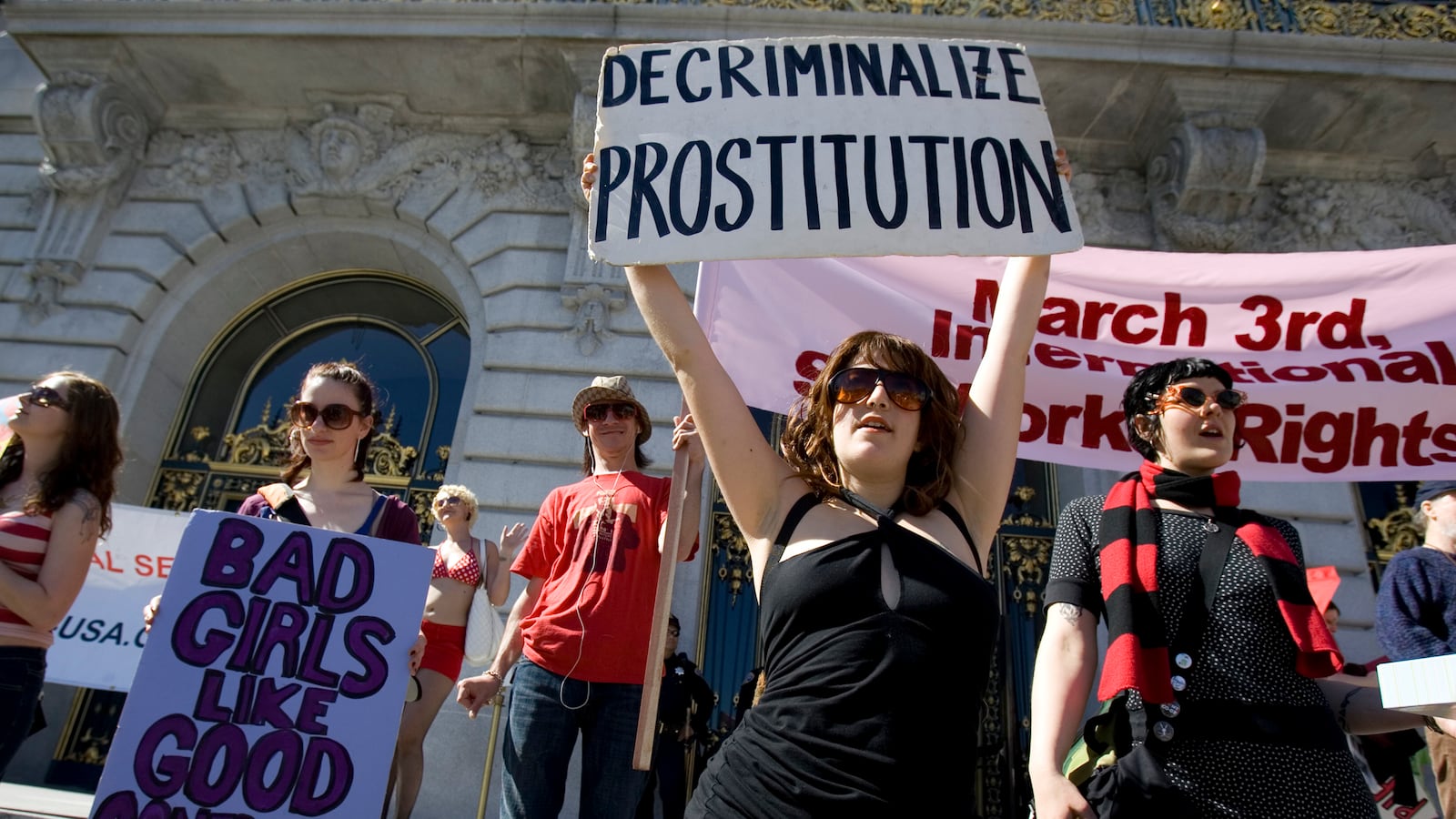#ImWithHer, but—as a former sex worker—I’ve got to wonder, is Hillary Clinton with me?
Shortly after Ima Matul’s speech Tuesday at the Democratic National Convention, the “sex trafficking survivor” who spoke in support of Hillary Clinton was revealed to have actually been a victim of forced labor (not sexual slavery). Sen. Amy Klobuchar’s convention speech also focused on sex trafficking, and cited questionable statistics about human trafficking being the “third largest” criminal economy in the world. Lena Dunham—a celebrity who in spite of fervent criticism has since doubled down on her stance against the decriminalization of sex work—was also a speaker.
I had cried before them listening to Michelle Obama’s rhetorical genius, but hearing these good Democrats trot out the same old tired clichés about sex trafficking—or talking boldly about their personal experiences as a survivor, while having blatantly denied the wisdom of survivors like me (I’m looking at you, Lena)—all reminded me of Hillary Clinton’s shoddy record when it comes to sex workers’ rights.
As journalist Elizabeth Nolan Brown rightly points out, “the war on sex trafficking is the new war on drugs.” Framed as a nationwide epidemic, and fueled by federal money, politicians win votes by taking the obvious position. Sex workers, as well as survivors, pay the cost.
It’s a war Clinton has fought in. Earlier in her career, he went on record as saying she “[does] not approve of prostitution” and that she “finds it demeaning to women,” as if her approval or disapproval does anything to pay sex workers’ rent, utilities, transportation, cover their tuition expenses or put shoes on their children’s feet.
“[As president] I would obviously speak out against prostitution and try to persuade women that it is not—even in a regulated system—necessarily a good way to try to make a living,” she said back in 2007.
Those of us who have dedicated our lives to the issue know the reasons individuals have sex for money are complex and varied. In a political campaign, sadly, nuance like this gets erased for the sake of popularity and political expediency.
In 2010, then-Secretary of State Hillary Clinton called for the end of human trafficking, penning an op-ed in support of the “Protocol to Suppress, Prevent and Punish Trafficking in Persons, Especially Women and Children” known as The U.S. Trafficking Protocol. The protocol was responsible for how trafficking came to be so broadly defined, and is a reason consensual sex work and sex trafficking is so often conflated— particularly in the case of migrant or transnational workers.
The purpose of that protocol, Clinton said in her 2010 remarks, was to put pressure on traffickers. And yet, this past May, Amnesty International released the findings of a long awaited report concluding such measures negatively impact both consensual sex workers and victims of sex trafficking alike.
The fact is that so long as economic motivators exist, we cannot “stress” the sex industry out of existence. Hyperbole does more harm than good.
To be sure, sex trafficking is a global concern, and no one should feel compelled to sell sex. I lost my career as a public school teacher in 2010 for coming forward about my own sex work past, a lifestyle I described as “physically demanding, emotionally taxing and spiritually bankrupting.” These days, I work with girls and young women best classified as victims of commercial sexual exploitation. Though equally heinous, Ima Matul’s story is markedly different from theirs.
According to Matul’s bio, her responsibilities included cooking, cleaning, laundry, caring for the children, gardening, and washing the car. She was compelled to work long hours, and ultimately never got paid. She says she was physically and verbally abused daily, but nowhere in her narrative does one find the word “sex,” let alone rape.
The reason for the fabrication is obvious: Sex trafficking is a cause célèbre for sensationalist media.
I know that politicians’ positions “evolve.” Clinton herself has softened or changed positions on a number of issues, including same-sex marriage, criminal-justice reform, the Keystone XL pipeline, and her vote to send troops to Iraq.
In 2011, the then-Secretary of State applauded department officials for meeting with a range of LGBT activists, including a number of self-described sex workers. It was a meeting Clinton described as “people-to-people diplomacy at its best.”
That gave me hope. Then came the convention and its tired clichés.
Our nation has waited a long time for a woman nominee. When it comes to authentic acknowledgement of our lives and experiences, current and former sex workers are still waiting.






